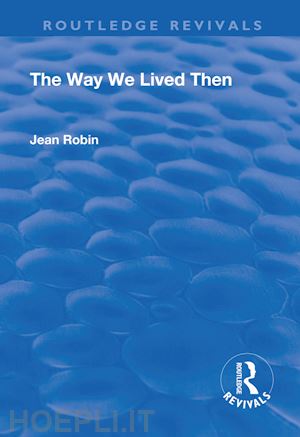This title was first published in 2000: The Way We Lived Then is a detailed study of a nineteenth-century community. It is based on the life histories of all the inhabitants of the parish of Colyton in Devon, covering the period from 1851 to 1891. The book gives a brief history of Colyton, which was mentioned in the Domesday book, and which suffered raids by soldiers, house searches, looting and even executions during the Civil War and the Monmouth rebellion, events which strengthened the townspeople's leaning towards Protestantism. The central section of the book is concerned with the lifestyle of the whole population from childhood to old age. Working childhoods, educational provision, pre-marital pregnancies, shifting populations and the care of the elderly are some of the issues dealt with. Finally the book covers community issues such as the relief of poverty, health care provision for the poor, and law and order. General readers will delight in an account of the whole community of a market town. Jean Robin's research and insight combine into a narrative which is authoritative yet accessible, replacing Victorian stereotypes with human beings, connecting real people and local events with each other and with the changing world outside. Jacket Copy: Historians will value this detailed study of a nineteenth-century community for its integration of many sources and techniques. It is based on the life histories of all the inhabitants of Colyton in Devon, covering the period from 1851 to the end of the century. Its depth and complexity are unique - multi-record linkage reconstitutes family histories; archival research illuminates civil administration, welfare and education; electoral and land registers are used to reveal social structure; and newspaper and other minor sources complete a unique portrait of a world we had thought had been lost to experience. Jean Robin’s research and insight combine into a narrative which is authoritative yet accessible, replacing Victorian stereotypes with human beings.












